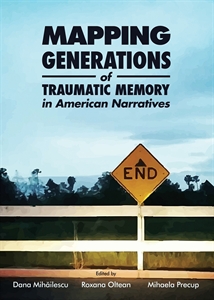Ed. Dana Mihăilescu, Roxana Oltean, Mihaela Precup
This volume collects work by several European, North American, and Australian academics who are interested in examining the performance and transmission of post-traumatic memory in the contemporary United States. The contributors depart from the interpretation of trauma as a unique exceptional event that shatters all systems of representation, as seen in the writing of early trauma theorists like Cathy Caruth, Shoshana Felman, and Dominick LaCapra. Rather, the chapters in this collection are in conversation with more recent readings of trauma such as Michael Rothberg’s “multidirectional memory” (2009), the role of mediation and remediation in the dynamics of cultural memory (Astrid Erll, 2012; Aleida Assman, 2011), and Stef Craps’ focus on “postcolonial witnessing” and its cross-cultural dimension (2013).
The corpus of post-traumatic narratives under discussion includes fiction, diaries, memoirs, films, visual narratives, and oral testimonies. A complicated dialogue between various and sometimes conflicting narratives is thus generated and examined along four main lines in this volume: trauma in the context of “multidirectional memory”; the representation of trauma in autobiographical texts; the dynamic of public forms of national commemoration; and the problematic instantiation of 9/11 as a traumatic landmark.

